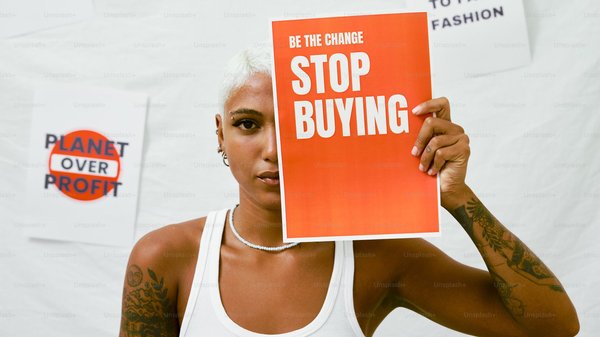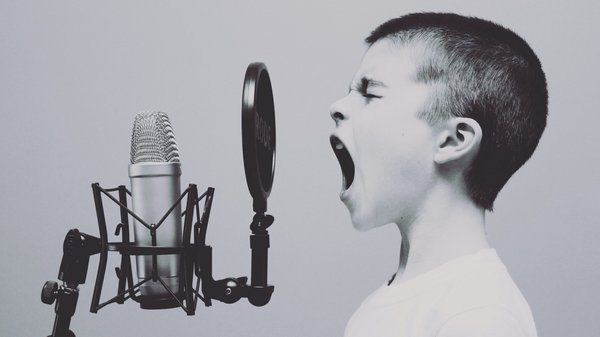Nothing ABC about Gen Z /
BBH strategists Rachel Ayeh-Datey and Emily Rule on what unites Gen Z and what those commonalities mean for brands
Contagious Contributor
/
Photo by Rita Vicari on Unsplash
They’ve helped elect a new US president. They’re set to be the most educated, most racially diverse, and most impactful generation we’ve ever seen. And Covid-19 has derailed their studies and fledgling careers, and affected their mental and physical health with far-reaching implications.
Gen Z, the generation born between 1996 and 2012, is making headlines every day. And they’re impacting consumer behaviours across the western world – just not necessarily in the ways you might expect. This means brands and retailers will need to adapt so that they’re not left in the dust once the reign of millennials is over.
But while you can find plenty of articles, think pieces, and research looking at the present realities of Generation Z, there’s less information about where they’re headed. So we decided to do some research of our own. Some of what we uncovered about Generation Z supports the clichés. But the even better bits suggest that, as this generation gets older and richer, the world is in for a few surprises.

The basics of Gen Z
Of course it would be naïve to paint 32% of the global population with the same brush. As per a separate BBH study based on TGI data, Generation Z has a relatively low ‘group cohesion score, which means they don’t have a lot of common ground when it comes to passions, habits and temperaments.
That’s why, for this Gen Z study, we surveyed a Gen Z audience reflecting a range of demographics, interviewing 1,500 people across Europe and North America, spanning income and education levels and age groups. Out of this, we found the points that do unite them.

Because although they may not hold the same opinions on everything, Generation Z as a whole is a massive force of change: this cohort of eight to 24-year-olds is predicted to influence their predecessors more than they will be influenced by the generations that have come before them.
To give a taste of the future, we’ve explored (and challenged) three Generation Z shifts: collectivism, equality, identity.
Collectivism /
The cliché: In 2014, forecasters almost unanimously agreed that Generation Z was set to be the “most individualistic generation yet.”
Our findings: A powerful counter-trend has emerged. Shaped by the de-prioritisation of individual liberty during the most trying periods of the Covid-19 pandemic, and by the impressive effects we’ve felt when we’ve worked together to curb the dreaded “R” number in our own countries, Generation Z will bring rise to a culture that rewards collective action over self-interest.

Sixty-five percent of respondents say that within the next 10 years, rifts will emerge between Generation Z and older generations who do not hold the same point of view. Twenty per cent of them go as far as to say that those who don’t embrace this wave of change and start acting in favour of the many, will be left behind.
Our verdict: What you’ve heard about Gen Z individualism is wrong. To stay relevant in the new collectivist world, brands and retailers must adapt to become proactive citizens that add value to the communities in which they operate, whether that be through carbon positive practices, community outreach, or CSR. Their contribution will not just be encouraged, it will be expected.
The brands and retailers who fail to meet these new collectivist expectations will be boycotted, blacklisted, and buried in the long term.

Equality /
The cliché: Generation Z is the most diverse generation – in the US, for example, 47% of of them are nonwhite. And they demand racial equality.
Our findings: Active anti-racism will become non-negotiable. Driven by the resurgence of Black Lives Matter, anti-racism is a trademark of Generation Z.

This year saw Black Lives Matter, once again, catapulted into the forefront of public consciousness. The movement, which started in 2013 after the killing of Trayvon Martin, resurged with a different set of contextual conditions.
The mixture of quarantine, increased unemployment and more time spent on social media was the perfect concoction for this revolutionary movement to gain traction. A majority of young people support the movement. Two out of three believe that more needs to be done in the UK to tackle racism.

Our verdict: What you’ve heard is right, but in the future we are going to see this trend accelerate.
For the next 10 years, 80% of Generation Z expect brands and retailers to take an active anti-racist stance in both their practice and communication. This will require genuine action, real sacrifice and visible commitment to a new era of equality.

Identity /
The cliché: Gender is becoming more of a fluid expression of identity. Research from VICE found 41% of Generation Z respondents from western countries identify themselves in the middle of the masculine to feminine scale.
And half identify themselves as something other than heterosexual. New research from Gucci and Thinktank found that 25% of people aged 15 to 24 expect their gender identification to change during their lifetime. Of these young people, 45% expect their gender identity to change two or three times.

Our findings: Yes, gender is no longer fixed. But more than that, it is becoming a part of a healthy, curious exploration of self-expression. According to our research, in the next 10 years, the role of gender will dramatically shift, so much so that 30% of Generation Z believes parents will choose to raise their children outside of traditional gender binaries.
Our verdict: What you’ve heard is shallow. Identity is not just fluid, it is constantly in flux and fast becoming a healthy act of self expression. Evidence of this is already clear in the fashion industry. Heavily gendered products and binary views of gender in marketing will alienate new customers going forward.
The question both brand execs and retailer profeshs need to ask themselves is, how adaptive are we really willing to be? How are you going to respond to the fluidity rippling around you?
Brands and retailers must get serious about their commitments to change. This will feel uncomfortable, but if you want to thrive in the next decade, you’ll need to score points on the Generation Z score board, so:
Serve the collective, openly and honestly.
Sacrifice profit for equality.
Support healthy self expression.
Want more of the same? /
We don’t just write about best-in-class campaigns, interviews and trends. Our Members also receive access to briefings, online training, webinars, live events and much more.






